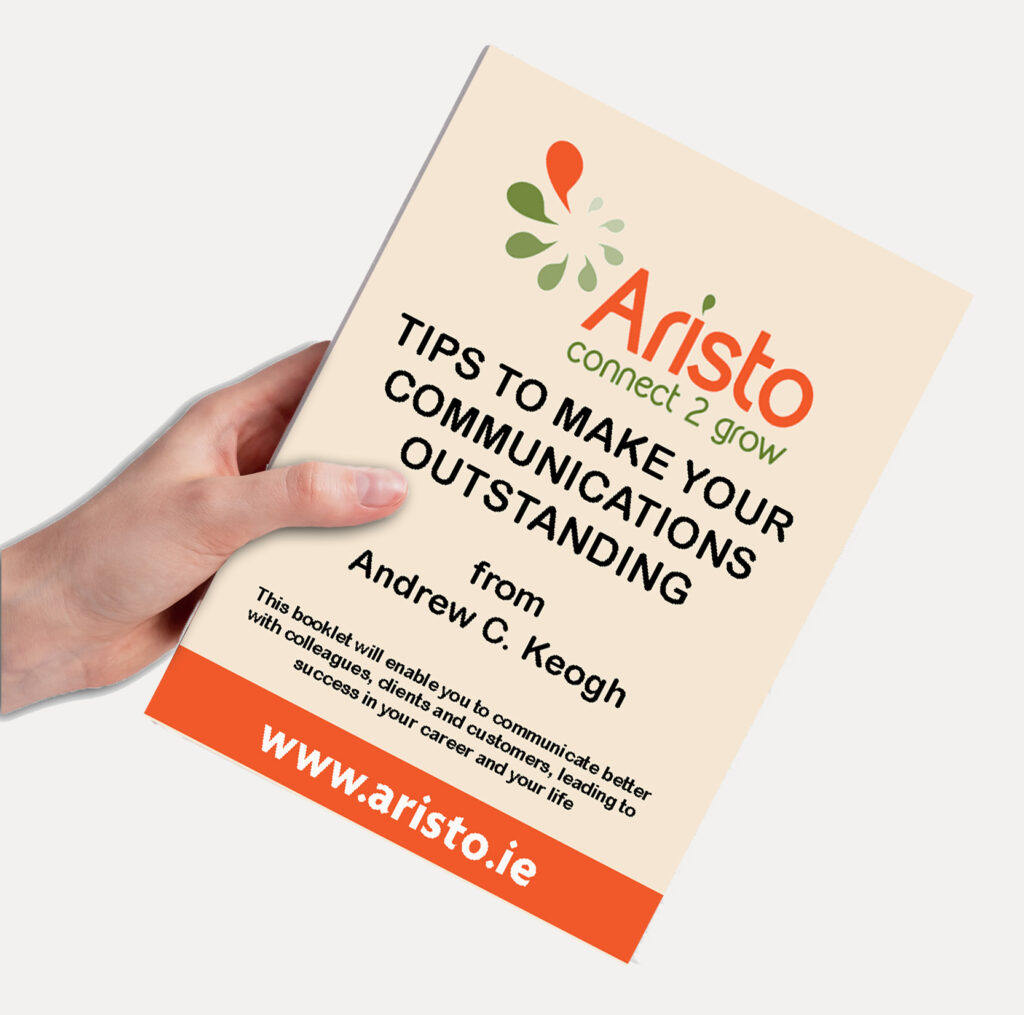
Having spent a couple of hours walking around the National Gallery of Ireland, I found myself in the hall of portraits. This is a collection of paintings of famous Irish people, both living and dead, by famous Irish artists, also both living and dead.
My observation was that the paintings that connected with me and engaged with me were the ones that I felt the subject of the painting was watching me and looking straight back at me.
I was there as part of my commitment to give some time to art and creativity, one of the requirements when signing up to the ‘Artist’s Way Program’ with my good friend Eve Earley.
My time in the gallery was both relaxing and stimulating, and got me thinking about the importance of eye contact in both our personal and public lives.
A wet fish handshake is not nice, but not looking at someone when having a conversation with them is a much bigger sin.
Let me tell you why you should look at people when having a conversation with them, be it one, five or hundred in your audience.
Eye contact says, I am interested in you and your ideas. Letting me know what’s important and allowing a judgement to be made by observing your body language, gestures, smile, frown, etc.
Most importantly when you take the focus off yourself and put the emphasis on your audience, it immediately reduces your stress levels and helps you to be a more effective communicator.
TIP: Advice I always give to people I coach is, mingle with your audience 10 to 15 minutes before you are due to speak. Chat and have a coffee with 2/3 people, it will relax both you and them. You can take this interaction to another level by mentioning them by name during your talk, e.g., “As John was saying earlier …”
For information on my next Presentation Skills Programme click here
You can choose to style yourself on Bob Dylan or Van Morrison and not engage with your audience or, as I would prefer, pay money to see Bruce Springsteen or Coldplay.
Most of us do not have the talent of any of these four artists, but we can engage with an audience, making the conversation more interesting for all parties concerned.
The purpose of a presentation or pitch is for your ideas to stick in the memory of your listener.
Recently, some minutes after six companies had pitched for investment, the adjudicators (me included) had completely forgotten 50% of the pitches; we could not even remember the companies’ names without prompting.
Make eye contact and this will improve your chances of being remembered.
P.S. This means no notes or very few!
My job is to help presenters’ ideas to stick/stand out so they will win sales and investment.
For information on my next Presentation Skills Programme click here




